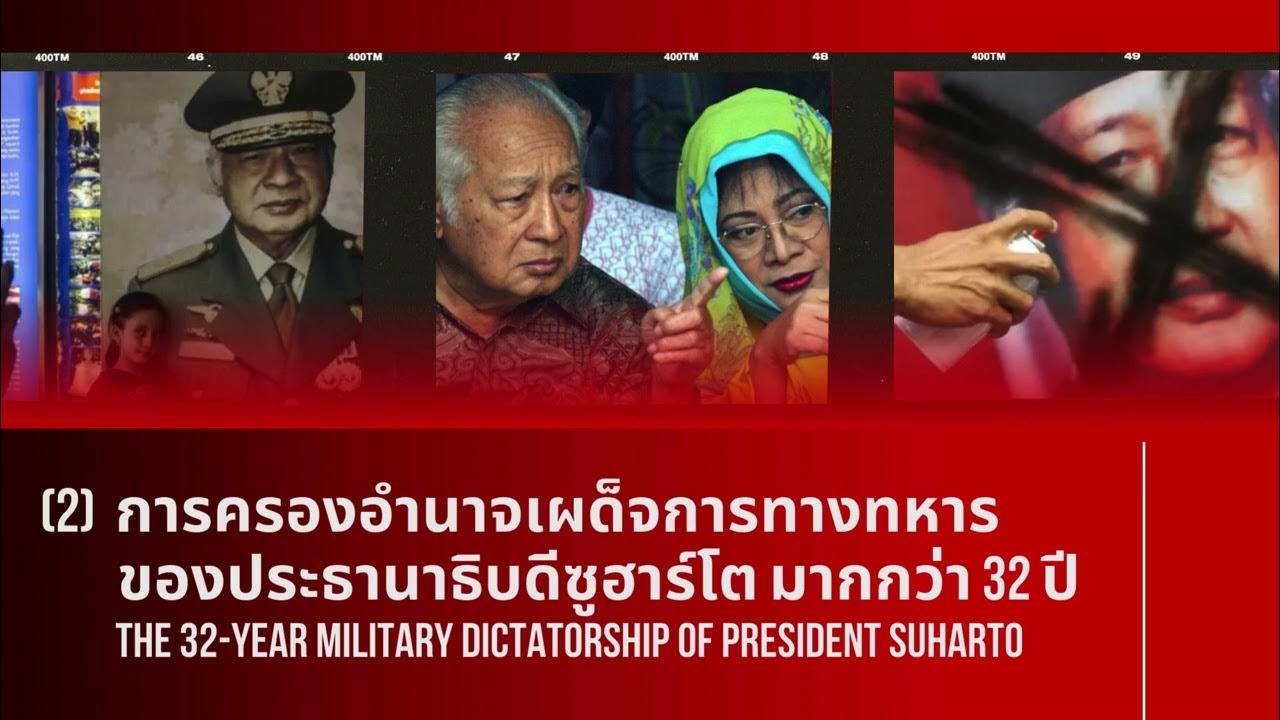Materi “DEMOKRASI” Kelompok 3 Prodi Akuntasi IIB UNRIKA
Summary
TLDRThis video presents an insightful overview of democracy, emphasizing its historical development in Indonesia from 1945 to the present. The speakers discuss the core principles of democracy, such as people's sovereignty, free and fair elections, and the protection of human rights. They highlight current challenges, including political corruption, low voter participation, misinformation, and oligarchy influence. To strengthen democracy, the video proposes solutions like early education on democratic values, electoral reforms, and independent institutions. The conclusion stresses the need for collaboration between the government, society, media, and education to enhance the democratic process.
Takeaways
- 😀 Democracy is a system of government that places the people as the highest authority, allowing them to participate in decision-making either directly or indirectly.
- 😀 The history of democracy in Indonesia evolved from 1945 to the present, transitioning from parliamentary democracy, guided democracy, to the New Order and finally, the Reform Era.
- 😀 The core principles of democracy include the sovereignty of the people, free and fair elections, the protection of human rights, and the freedom of expression.
- 😀 Public involvement is crucial for maintaining and advancing democracy, particularly through participation in elections, especially for citizens aged 17 and above.
- 😀 A major challenge to democracy in Indonesia is money politics, where candidates buy votes, undermining fairness and justice in elections.
- 😀 Low political participation is another issue, as many citizens do not fully understand or exercise their voting rights responsibly.
- 😀 The abuse of power is a significant problem, with officials using their positions for personal or group interests.
- 😀 Disinformation and hoaxes spread through social media, which can divide society and damage the democratic process.
- 😀 Oligarchy dominance in politics and economics prevents true democracy, as elite groups influence key decisions, sidelining the interests of the general public.
- 😀 Strengthening democracy in Indonesia requires strategic solutions, such as early education on democracy, electoral system reforms, and empowering independent institutions like the KPU, Bawaslu, and KPK.
- 😀 In conclusion, while democracy has made significant strides in Indonesia, challenges such as money politics, oligarchic dominance, disinformation, and low participation remain. It is essential for the government, society, media, and education sectors to collaborate in enhancing the quality of democracy.
Q & A
What is democracy?
-Democracy is a system of government that places the people as the highest authority. The people participate in decision-making either directly or indirectly through voting or other forms of engagement.
How has democracy evolved in Indonesia from 1945 to the present?
-From 1945 to 1959, Indonesia had a form of democracy. From 1959 to 1965, there was 'Guided Democracy.' Between 1966 and 1998, the system was 'Pancasila Democracy' under the New Order, and since 1998, Indonesia has adopted a reformist democracy.
What are the main principles of democracy?
-The main principles include people's sovereignty, free and fair elections, respect for human rights, freedom of expression, and active citizen involvement in democratic processes.
How do citizens participate in a democracy in Indonesia?
-Citizens participate by voting in elections, expressing their opinions, and engaging in discussions or activities that influence government decisions. For example, those aged 17 and above are eligible to vote in national elections.
What are some of the major challenges faced by democracy in Indonesia?
-Challenges include political corruption (money politics), low political participation, abuse of power, disinformation and hoaxes, and the dominance of oligarchs who influence government decisions.
What is the role of money politics in undermining democracy in Indonesia?
-Money politics involves candidates using financial incentives to buy votes, which undermines fairness and the democratic principle of equality in the voting process.
Why is political participation important in a democracy?
-Political participation ensures that the government reflects the interests and needs of the people. Active participation helps maintain the legitimacy of democratic processes and holds elected officials accountable.
What solutions are suggested to strengthen democracy in Indonesia?
-Solutions include implementing early education on democracy in schools, reforming the election system to be more just and free from money politics, and strengthening state institutions such as the KPU (General Elections Commission), Bawaslu (Election Supervisory Board), and KPK (Corruption Eradication Commission).
What role do media and education play in strengthening democracy?
-Media helps inform the public and foster transparent communication, while education can instill democratic values in future generations, creating an informed electorate that actively participates in democratic processes.
How does oligarchy affect democracy in Indonesia?
-Oligarchic dominance refers to a small, powerful elite group influencing key political decisions, often prioritizing their interests over the broader public, which can distort democracy and hinder genuine representation.
Outlines

Cette section est réservée aux utilisateurs payants. Améliorez votre compte pour accéder à cette section.
Améliorer maintenantMindmap

Cette section est réservée aux utilisateurs payants. Améliorez votre compte pour accéder à cette section.
Améliorer maintenantKeywords

Cette section est réservée aux utilisateurs payants. Améliorez votre compte pour accéder à cette section.
Améliorer maintenantHighlights

Cette section est réservée aux utilisateurs payants. Améliorez votre compte pour accéder à cette section.
Améliorer maintenantTranscripts

Cette section est réservée aux utilisateurs payants. Améliorez votre compte pour accéder à cette section.
Améliorer maintenantVoir Plus de Vidéos Connexes

Sistem dan Dinamika Demokrasi Pancasila di Indonesia

KONSEP DAN IMPLEMENTASI BELA NEGARA DALAM PERSPEKTIF KEWARGANEGARAAN

Dinamika dan Tantangan Demokrasi di Indonesia | Kelompok 9 Kelas A

SEJARAH PERKEMBANGAN DEMOKRASI DI INDONESIA

Political System and Governance of Indonesia

Dinamika Penerapan Demokrasi Pancasila - PPKn Kelas 11
5.0 / 5 (0 votes)
